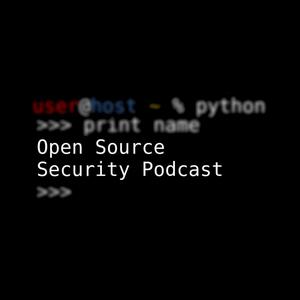
Hacker Public Radio
Hacker Public Radio
Hacker Public Radio is an podcast that releases shows every weekday Monday through Friday. Our shows are produced by the community (you) and can be on any topic that are of interest to hackers and hobbyists.
- HPR4308: What tech Kevie would spend £2000 on
This show has been flagged as Clean by the host.
What Tech would I spend my £2000 on:
This episode took inspiration from episode 134 of the Linux Lads podcast
Pilet £295 + Pi 5 (16GB) 114.90 = £409.90
Juno Tab 3 £631.75
FairPhone 5 £599
Donations (£89.83 each):
archive.org https://archive.org/donate
5 February 2025, 12:00 am - HPR4307: Chat with Sgoti
This show has been flagged as Explicit by the host.
6.7 Arrays
Bash provides one-dimensional indexed and associative array variables.
https://www.gnu.org/software/bash/manual/html_node/Arrays.html
6.3. Pattern-Matching Rules docstore.mik.ua/orelly/unix3/vi/ch06_03.htm
https://docstore.mik.ua/orelly/unix3/vi/ch06_03.htm
6.1 How sed Works
sed maintains two data buffers: the active pattern space, and the auxiliary hold space.
https://www.gnu.org/software/sed/manual/html_node/Execution-Cycle.html
Campaign 1: Vox Machina Podcast
https://critrole.com/campaign-1-podcast/
wget - 1.25.0
https://www.gnu.org/software/wget/manual/
Everything curl is an extensive guide for all things curl.
https://everything.curl.dev/index.html
Screen is a full-screen window manager that multiplexes a physical terminal between...
https://www.gnu.org/software/screen/manual/
tmux is a terminal multiplexer.
https://github.com/tmux/tmux/wiki
4 February 2025, 12:00 am - HPR4306: HPR Community News for January 2025
This show has been flagged as Explicit by the host.
New hosts
Welcome to our new host:
iota.Last Month's Shows
Id Day Date Title Host 4283 Wed 2025-01-01 Toley bone repair MrX 4284 Thu 2025-01-02 HPR Developer Information Ken Fallon 4285 Fri 2025-01-03 What is on My Podcast Player 2024, Part 5 Ahuka 4286 Mon 2025-01-06 HPR Community News for December 2024 HPR Volunteers 4287 Tue 2025-01-07 Schedule audio recordings on the command line Kevie 4288 Wed 2025-01-08 God's Pantry Food Bank SolusSpider 4289 Thu 2025-01-09 Welcome Nuudle Some Guy On The Internet 4290 Fri 2025-01-10 Playing Civilization IV, Part 5 Ahuka 4291 Mon 2025-01-13 AM on the Nyquist Prompt Lee 4292 Tue 2025-01-14 Firefox Add-ons Reto 4293 Wed 2025-01-15 HTTrack website copier software Henrik Hemrin 4294 Thu 2025-01-16 Schedule audio recordings on the command line - A bit of fine tuning Kevie 4295 Fri 2025-01-17 Three Holiday Hacks from 2023 Ken Fallon 4296 Mon 2025-01-20 Crafting Interpreters iota 4297 Tue 2025-01-21 Let me tell you a bit about FOSDEM Trollercoaster 4298 Wed 2025-01-22 Playing a Blu-ray disk directly from Linux. SolusSpider 4299 Thu 2025-01-23 Building your own Debian images for your Raspberry Pi dnt 4300 Fri 2025-01-24 Isaac Asimov: I, Robot Ahuka 4301 Mon 2025-01-27 Wide screen, synth, e-bike, led matrix clock and jewellery making Lee 4302 Tue 2025-01-28 New Campaign Trail Playthrough Lochyboy 4303 Wed 2025-01-29 TIL two things to do with firewalld dnt 4304 Thu 2025-01-30 Travel Pouch for Cables Ahuka 4305 Fri 2025-01-31 My weight and my biases TrollercoasterComments this month
These are comments which have been made during the past month, either to shows released during the month or to past shows. There are 43 comments in total.
Past shows
There are 7 comments on 4 previous shows:
- hpr4070
(2024-03-08) "Civilization III"
by Ahuka.
-
- Comment 1: Red Orm on 2025-01-01: "hpr4070 :: Civilization III"
- Comment 2: Kevin O'Brien on 2025-01-02: "Thank you"
- hpr4260
(2024-11-29) "The Golden Age"
by Ahuka.
-
- Comment 1: Moss Bliss on 2025-01-01: "Penguicon"
- Comment 2: Kevin O'Brien on 2025-01-01: "Sorry to hear it"
- hpr4274
(2024-12-19) "The Wreck - I'm alright!"
by Archer72.
-
- Comment 3: Annebelle on 2025-01-15: "Mark's Niece"
- hpr4280
(2024-12-27) "Isaac Asimov: The Foundation"
by Ahuka.
-
- Comment 1: Red Orm on 2025-01-01: "hpr4280 :: Isaac Asimov: The Foundation"
- Comment 2: Kevin O'Brien on 2025-01-02: "Thank you"
This month's shows
There are 36 comments on 20 of this month's shows:
- hpr4286 (2025-01-06) "HPR Community News for December 2024" by HPR Volunteers.
-
- Comment 1: Kevin O'Brien on 2025-01-09: "Yes I did have that many books"
- hpr4287 (2025-01-07) "Schedule audio recordings on the command line" by Kevie.
-
- Comment 1: Kevie on 2025-01-07: "example radio stream"
- Comment 2: Henrik Hemrin on 2025-01-08: "Inspiring episode"
- hpr4288 (2025-01-08) "God's Pantry Food Bank" by SolusSpider.
-
- Comment 1: Malink on 2025-01-08: "God's Food Pantry"
- Comment 2: archer72 on 2025-01-08: "Thank you for this show"
- Comment 3: ClaudioM on 2025-01-08: "Great Episode, SolusSpider!"
- Comment 4: Kevin O'Brien on 2025-01-09: "Great show!"
- Comment 5: Paulj on 2025-01-10: "Great Episode"
- Comment 6: SolusSpider - Peter Paterson on 2025-01-27: "Appreciation"
- hpr4289 (2025-01-09) "Welcome Nuudle" by Some Guy On The Internet.
-
- Comment 1: Trey on 2025-01-09: "Say Cheese..."
- hpr4291 (2025-01-13) "AM on the Nyquist Prompt" by Lee.
-
- hpr4292 (2025-01-14) "Firefox Add-ons" by Reto.
-
- Comment 1: Ken Fallon on 2025-01-11: "Great Tips"
- Comment 2: Trey on 2025-01-14: "Hesitant about add-ons"
- Comment 3: Reto on 2025-01-17: "in reply to Ken"
- hpr4293 (2025-01-15) "HTTrack website copier software" by Henrik Hemrin.
-
- Comment 1: Ken Fallon on 2025-01-11: "Great tip"
- hpr4294 (2025-01-16) "Schedule audio recordings on the command line - A bit of fine tuning" by Kevie.
-
- Comment 1: Ken Fallon on 2025-01-14: "Nice to see the progression"
- hpr4295 (2025-01-17) "Three Holiday Hacks from 2023" by Ken Fallon.
-
- Comment 1: Ken Fallon on 2025-01-14: "Update after a year in the queue"
- hpr4296 (2025-01-20) "Crafting Interpreters" by iota.
-
- Comment 1: archer72 on 2025-01-19: "First show"
- hpr4297 (2025-01-21) "Let me tell you a bit about FOSDEM" by Trollercoaster.
-
- Comment 1: Trey on 2025-01-21: "Thank you for sharing."
- Comment 2: paulj on 2025-01-28: "See you there?!"
- Comment 3: Trollercoaster on 2025-01-31: "Thanks for the comments!"
- hpr4298 (2025-01-22) "Playing a Blu-ray disk directly from Linux." by SolusSpider.
-
- Comment 1: archer72 on 2025-01-19: "MakeMKV Beta key"
- hpr4299 (2025-01-23) "Building your own Debian images for your Raspberry Pi" by dnt.
-
- hpr4300 (2025-01-24) "Isaac Asimov: I, Robot" by Ahuka.
-
- Comment 1: Ken Fallon on 2025-01-15: "iRobot"
- Comment 2: Stilvoid on 2025-01-27: "Great series"
- Comment 3: Kevin O'Brien on 2025-01-27: "More to come"
- hpr4301 (2025-01-27) "Wide screen, synth, e-bike, led matrix clock and jewellery making" by Lee.
-
- Comment 1: Ken Fallon on 2025-01-20: "Wasting shows - OWWW !!!"
- Comment 2: brian-in-ohio on 2025-01-27: "avrdude"
- hpr4302 (2025-01-28) "New Campaign Trail Playthrough" by Lochyboy.
-
- Comment 1: Ken Fallon on 2025-01-28: "Spam ?"
- hpr4304 (2025-01-30) "Travel Pouch for Cables" by Ahuka.
-
- Comment 1: Trey on 2025-01-30: "Perfect timing"
- hpr4310 (2025-02-07) "Playing Civilization IV, Part 6" by Ahuka.
-
- Comment 1: Ken Fallon on 2025-01-15: "Not a gamer"
- Comment 2: Kevin O'Brien on 2025-01-15: "Well, it is math, really"
- hpr4311 (2025-02-10) "LoRaWAN and the Things Stack" by Lee.
-
- Comment 1: Ken Fallon on 2025-01-15: "Great insignt into LoRaWAN"
- hpr4330 (2025-03-07) "GIMP: Fixing Photos" by Ahuka.
-
- Comment 1: Ken Fallon on 2025-01-15: "Great Tips"
Mailing List discussions
Policy decisions surrounding HPR are taken by the community as a whole. This discussion takes place on the Mailing List which is open to all HPR listeners and contributors. The discussions are open and available on the HPR server under Mailman.
The threaded discussions this month can be found here:
https://lists.hackerpublicradio.com/pipermail/hpr/2025-January/thread.htmlEvents Calendar
With the kind permission of LWN.net we are linking to The LWN.net Community Calendar.
Quoting the site:
This is the LWN.net community event calendar, where we track events of interest to people using and developing Linux and free software. Clicking on individual events will take you to the appropriate web page.3 February 2025, 12:00 am - hpr4070
(2024-03-08) "Civilization III"
by Ahuka.
- HPR4305: My weight and my biases
This show has been flagged as Explicit by the host.
Introduction
- Greeting and Context
- Welcome
- Episode Overview
- Why This Topic?
- Ubiquity of AI
- Ethics Matters for Builders and Hackers
- Community Responsibility
- Call to Exploration
Setting the Stage
- What We’re Talking About
- Discussion Centered on Commonly Used AI Applications
- What We’re Not Covering
- Historical Perspective
- Early AI Dreams
- Modern Realities
- The Hacker Ethos and Why It Matters
- Transparency and Openness
- Ethical Frameworks
- Empowering the Community
Transparency and Openness
- Open Source vs. Proprietary
- Access to Source Code:
- Access to Weights, Biases, and Training Methods
- Training Data
- Sources of Data
- Open Datasets vs. Restricted or Proprietary Data
- Ethical Questions
- Trade-Offs in Permission and Diversity
- Openness vs. Misuse
Legal and Regulatory Dimensions
- Consent & Permissions
- Data Usage
- Global Variations
- Accountability
- Liability in AI Systems
- Corporate vs. Individual Responsibility
- Regulatory Landscape
- Different Approaches
- Balancing Innovation and Control
Sustainability Concerns
- Energy Consumption
- Carbon Footprint of Training and Inference
- Environmental Impact of Data Centers
- Future Solutions
- Efficient Models and Green Data Centers
- Balancing Innovation with Responsibility
Bias, Fairness, and Societal Impact
- Data Bias
- Discriminatory Outcomes
- Detection and Mitigation
- Fairness in Decision-Making
- Critical Sectors
- Systemic Impact
- Social Engineering & Manipulation
- Influence on Public Opinion
- Misinformation Risks
The Addictive Potential of AI and “AI Buddies”
- Embedded (Often Invisibly) in Social Media
- Subtle Integration
- Continuous Engagement Loops
- AI Buddies and Emotional Dependence
- Always-On Validation
- Emotional “Self-Indulgence”
- AI Agents Doing the “Boring Work”
- From Assistance to Dependency:
- Lower Friction, Higher Usage
- Vulnerable Users and Youth
- Teens in Crisis
- Shaping Self-Image
- Design Choices That Amplify Attachment
- Human-Like Tones and Expressions
- Reward Systems and “Leveling Up”
- Mitigating Risks to Mental and Social Well-Being
- User Education
- Ethical Product Design
- Regulatory Oversight
Explainability and Trust
- Transparency of Reasoning
- Black-Box Challenge
- Techniques to Enhance Explainability
- Uncertainty and Confidence Scores
- Expressing Certainty
- Importance in Critical Applications
Military and Illicit Uses
- PsyOps and mass manipulation
- AI in Hacking and Phishing:
- Automated Social Engineering and Psychological Operations (PsyOps):
- Undermining Trust:
- Military Applications
- Autonomous Weapons and Surveillance
- Ethical Implications of Lethal Autonomy
Looking Forward
- Innovation vs. Caution
- Striking a Balance:
- Practical Considerations
- Adaptive Regulation
- Evolving Guidelines
- Flexible Frameworks
- Community Involvement
- Open-Source Contributions
- Public Debates and Awareness
Thinking like a hacker
Preamble: I am not encouraging you to engage in illegal activity. Follow your conscience, obey your curiosity. Take up your responsibility in the world. You be the judge of what that implies.
Tinker, Reverse-Engineer, and Learn
- Explore Existing Models
- Reverse-Engineering Proprietary Systems
- DIY Mini-Projects
Champion Openness and Transparency
- Contribute to Open-Source AI
- Push for Open Weights and Data
- Engage in Model Auditing
Think Critically About Ethics and Privacy
- Data Collection Scrutiny
- Privacy by Design
- Hacker Ethos Meets Ethical AI
Collaborate and Share Knowledge
- Participate in Hackathons and Research Sprints
- Mentorship and Community Engagement
- Peer Review and Cross-Pollination
Hack the Bias—Literally
- Open Audits on Model Bias
- Create Bias-Resistant Tools
Innovate Responsibly
- Experimentation with Purpose
- Sustainable Innovation
Stay Vigilant on Addictive and Manipulative Designs
- Critical Examination
- Propose Alternatives
Be the Watchdog—and Sound the Alarm
- Reporting Flaws and Exploits
- Ethical Whistleblowing
Conclusion: Challenge to Think Like a Hacker
- Summation
- Embrace the Hacker Ethos
- Stay Curious, Stay Responsible
- Final Note
31 January 2025, 12:00 am - HPR4304: Travel Pouch for Cables
This show has been flagged as Clean by the host.
This is about a travel pouch I purchased to organize my electronic cables and chargers. I have filled it with all of the cables, chargers, headphones, etc. that I might need when on the road. Now when I am packing I don't have to run around looking for cables, I only need to throw this pouch into my bag and I am ready to go. This is a real time saver, and I always have what I need.
Links
30 January 2025, 12:00 am - HPR4303: TIL two things to do with firewalld
This show has been flagged as Clean by the host.
Two things I learned recently:
- You can't use the first and the last IP address in a /24 block.
- When you start a podman container, it adds a source IP address to you Trusted zone in firewalld. If you restart firewalld, your podman container becomes inaccessible.
HPR show about CIDR notation: https://hackerpublicradio.org/eps/hpr4041/index.html
29 January 2025, 12:00 am - HPR4302: New Campaign Trail Playthrough
This show has been flagged as Clean by the host.
In this show Lochyboy plays the game https://www.newcampaigntrail.com/campaign-trail/index.html
"A backup of the current Campaign Trail Game from AmericanHistoryUSA in order to protect the game and allow for easier modding/new potential scenarios. "
This is an archive of the source code of the site for the American election simulator known as The Campaign Trail. In it, players simulate various contested elections throughout American history, making choices and answering questions in order to improve their chances at winning. The original site is rarely updated, so this backup has been made with features added for easier modding.
28 January 2025, 12:00 am - HPR4301: Wide screen, synth, e-bike, led matrix clock and jewellery making
This show has been flagged as Explicit by the host.
Ultra wide monitor
An LG UltraWide monitor supports a 32:9 aspect ratio, up to 5120 x 1440.
Display drivers
static VIC_MODE gpu_vic_mode_table[] = { {1, {640, 480}}, {2, {720, 480}}, ... {93, {3840, 2160}}, {94, {3840, 2160}}, ... {127, {5120, 2160} }, }
Games
No Man's Sky
Skyrim
Synth
https://apps.apple.com/gb/app/mela-3-synth-fx-midi/id1612218703
E-bike
Arduino Clock
Jewellery making
27 January 2025, 12:00 am - HPR4300: Isaac Asimov: I, Robot
This show has been flagged as Clean by the host.
Isaac Asimov invented the Three Laws of Robotics in a series of stories that changed how robots were depicted in fiction. These stories have become so influential that they are worth a little look.
Links:
- https://en.wikipedia.org/wiki/Robbie_(short_story)
- https://en.wikipedia.org/wiki/Runaround_(story)
- https://en.wikipedia.org/wiki/Three_Laws_of_Robotics
- https://en.wikipedia.org/wiki/I,_Robot
- https://en.wikipedia.org/wiki/USRobotics
- https://en.wikipedia.org/wiki/Liar!_(short_story)
- https://en.wikipedia.org/wiki/The_Rest_of_the_Robots
- https://en.wikipedia.org/wiki/The_Complete_Robot
- https://en.wikipedia.org/wiki/Norby
- https://en.wikipedia.org/wiki/Robot_Dreams
- https://en.wikipedia.org/wiki/Robot_Visions
- https://en.wikipedia.org/wiki/The_Magazine_of_Fantasy_%26_Science_Fiction
- https://cosmicrootsandeldritchshores.com/features/asimovs-essays/
- https://www.amazon.com/Robot-Illustrated-Screenplay-Harlan-Ellison/dp/1596870419
- https://en.wikipedia.org/wiki/Bicentennial_Man_(film)
- https://en.wikipedia.org/wiki/The_Measure_of_a_Man_(Star_Trek:_The_Next_Generation)
- https://en.wikipedia.org/wiki/I,_Robot_(film)
- https://www.palain.com/science-fiction/the-golden-age/isaac-asimov-i-robot/
24 January 2025, 12:00 am - HPR4299: Building your own Debian images for your Raspberry Pi
This show has been flagged as Clean by the host.
On https://raspi.debian.net/ one time the image was broken, so I had to built it myself.
https://salsa.debian.org/raspi-team/image-specs
The makefile can create you a yaml file for your pi model and your release of Debian. Then you can edit that file to do whatever you want to the system, before making it into an image.
For example:
- In the section apt/packages, add sudo.
- Create a user, add it to the sudo group, with password "" and /bin/bash for shell
- Create a .ssh for your user, and echo in your SSH public keyboard
That way you can boot into your new Debian system without having to have a screen.
As soon as you login, the first thing you should do is reset your own password.
By doing -p "" we set the password to empty.
If we had not done -p "" the password would have been empty but locked, so you wouldn't be able to sudo.
Also go ahead and lock your root user password, which you could also do from the file.
Build your image, and go.
23 January 2025, 12:00 am - More Episodes? Get the App
Your feedback is valuable to us. Should you encounter any bugs, glitches, lack of functionality or other problems, please email us on [email protected] or join Moon.FM Telegram Group where you can talk directly to the dev team who are happy to answer any queries.






 Security Weekly News (Audio)
Security Weekly News (Audio)
 Open Source Security Podcast
Open Source Security Podcast
 Threat Wire
Threat Wire
 Off The Hook
Off The Hook
 The Threatpost Podcast
The Threatpost Podcast
 The Shared Security Show
The Shared Security Show